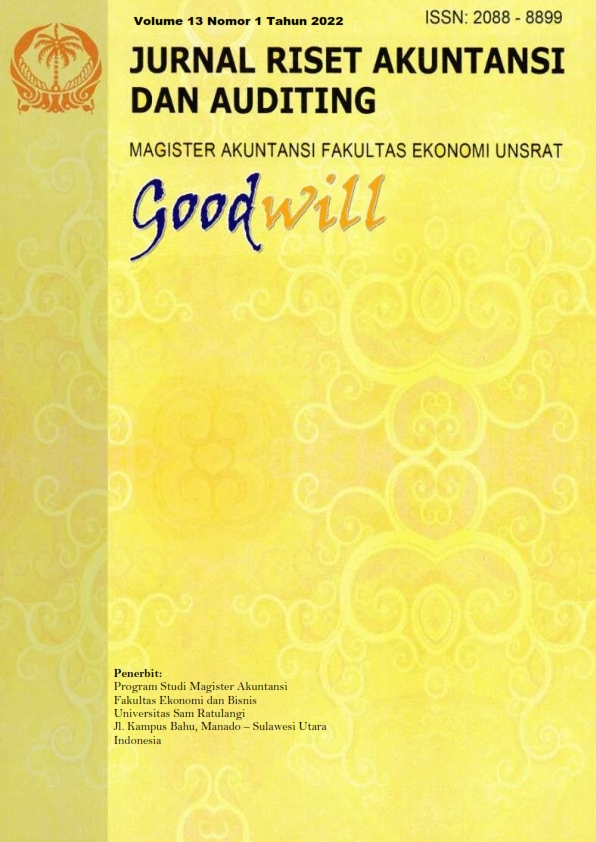PENGARUH MORAL REASONING, PENGALAMAN KERJA DAN BEBAN KERJA TERHADAP KEMAMPUAN AUDITOR DALAM MENDETEKSI KECURANGAN (STUDI PADA AUDITOR DI BADAN PEMERIKSA KEUANGAN REPUBLIK INDONESIA PERWAKILAN PROVINSI SULAWESI UTARA DAN GORONTALO
DOI:
https://doi.org/10.35800/jjs.v13i1.39674Abstract
In managing state finances, the risk of fraud is inseparable, based on the recapitulation data on corruption crimes from the Corruption Eradication Commission (KPK) as of December 31, 2018, and strengthened by the publication of the Indonesia Corrupption Watch (ICW), the number of cases of abuse and embezzlement of the state budget in the government amounted to 454 corruption cases in 2018. These cases cost the state Rp 5.8 trillion. Due to the large number of fraud cases, BPK is expected to be better able to carry out his duties in detecting fraud in order to eradicate fraud that has been happening so far. In this study, researchers examined the effect of moral reasoning, work experience, workload and personality type on the auditor's ability to detect fraud. The sample of this study was the auditors at the Supreme Audit Agency of the Republic of Indonesia (BPK RI) Representatives of the Provinces of North Sulawesi and Gorontalo as many as 54 auditors. Hypothesis testing using multiple linear regression analysis. From the results of multiple linear regression, it can be concluded that the first hypothesis is that moral reasoning affects the auditor's ability to detect fraud, the second hypothesis is that work experience has an effect on the auditor's ability to detect fraud, and the third hypothesis is that workload affects the auditor's ability to detect fraud.

